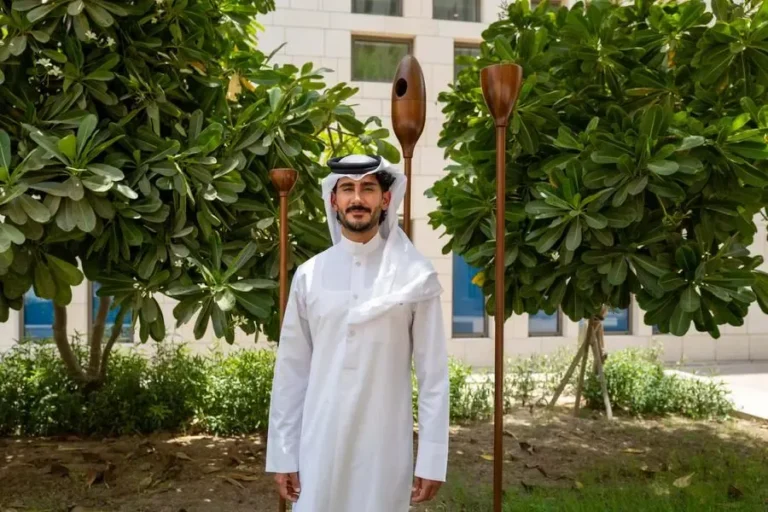Doha, Qatar: Doha Design District (DDD) and VCUarts Qatar have collaborated with artist Abdelrahman Al Muftah to design an innovative, sustainable sanctuary for Qatar’s native Bulbul birds. The Bird Cluster project, which includes a planter, bird nest, watering tray, and feeding tray, has been brought to life in Msheireb as part of DDD’s commitment to advancing Qatar’s Vision 2030, a future driven by sustainability and innovation. By encouraging collaboration and empowering emerging designers, this project exemplifies how DDD and VCUarts Qatar are cultivating local talent to create impactful solutions that benefit the community.
Dana Kazic, Director of Doha Design District said: “This collaboration with VCUarts Qatar and Abdulrahman Al Muftah reflects our mission to nurture creativity and empower young designers to address real-world challenges through meaningful design. By merging sustainability with innovation, we’re not only working towards contributing to our national vision but also inspiring the next generation of designers to think critically about their role in shaping a better future for our society.”
Rab McClure, Professor and Director, MFA in Design, VCUarts Qatar said: “The Bird Cluster project embodies significant and meaningful ideas. It stands out for its research-driven design approach, supported through the collaborative efforts of VCUarts Qatar and Doha Design District. This work exemplifies the kind of locally rooted, socially conscious design we strive to cultivate, creating projects that help to advance the broader vision of a sustainable urban environment for all.”
Al Muftah worked closely with DDD and VCUarts Qatar to ensure the structure was both sustainable and innovative. Inspired by traditional Qatari architecture, the design seamlessly integrates into the urban landscape while providing functional nesting spaces for smaller birds. The compact yet secure structure features entry points specifically designed to exclude larger invasive species, ensuring a haven for Qatar’s native Bulbul birds. This attention to detail highlights the project’s dual focus on preserving biodiversity and maintaining harmony with the environment.
Abdulrahman Al Muftah, designer of The Bird Cluster, expressed: “Working with Doha Design District and VCUarts Qatar’s Boost Lab to bring this project to life was truly rewarding. As a designer, I’m passionate about integrating flora and fauna into public spaces because it creates environments that support biodiversity and multiple species can thrive together. For me, thoughtful design goes beyond aesthetics – it’s about understanding and considering the broader environmental impact of what we create. Every design decision ripples outward, affecting not just human users but entire ecosystems.”
This initiative emphasises the broader significance of collaborative efforts between DDD and VCUarts Qatar. By bringing together creative minds, local expertise, and forward-thinking design principles, projects like this contribute meaningfully to society, benefiting both the environment and the community. Through this partnership, DDD and VCUarts Qatar continue to demonstrate how design can be a powerful tool for driving positive change and building a more sustainable future for Qatar.
About Doha Design District
Doha Design District (DDD), located in the heart of Msheireb Downtown Doha, is a leading hub for design, innovation, and cultural exchange in Qatar. Guided by a vision to position Doha as the capital of creative imagination, DDD serves as a platform where design is continuously reimagined, challenged, and celebrated.
With a clear mission to inspire a design movement, DDD supports emerging and established talent, facilitates international and cross-sector collaboration, and creates purposeful experiences across a programme of exhibitions, installations, workshops, and talks.
As a strategic initiative of Msheireb Properties, DDD plays an important role in advancing Qatar’s National Vision 2030, contributing to cultural development, innovation-led growth, and a more sustainable, creative-based economy.


